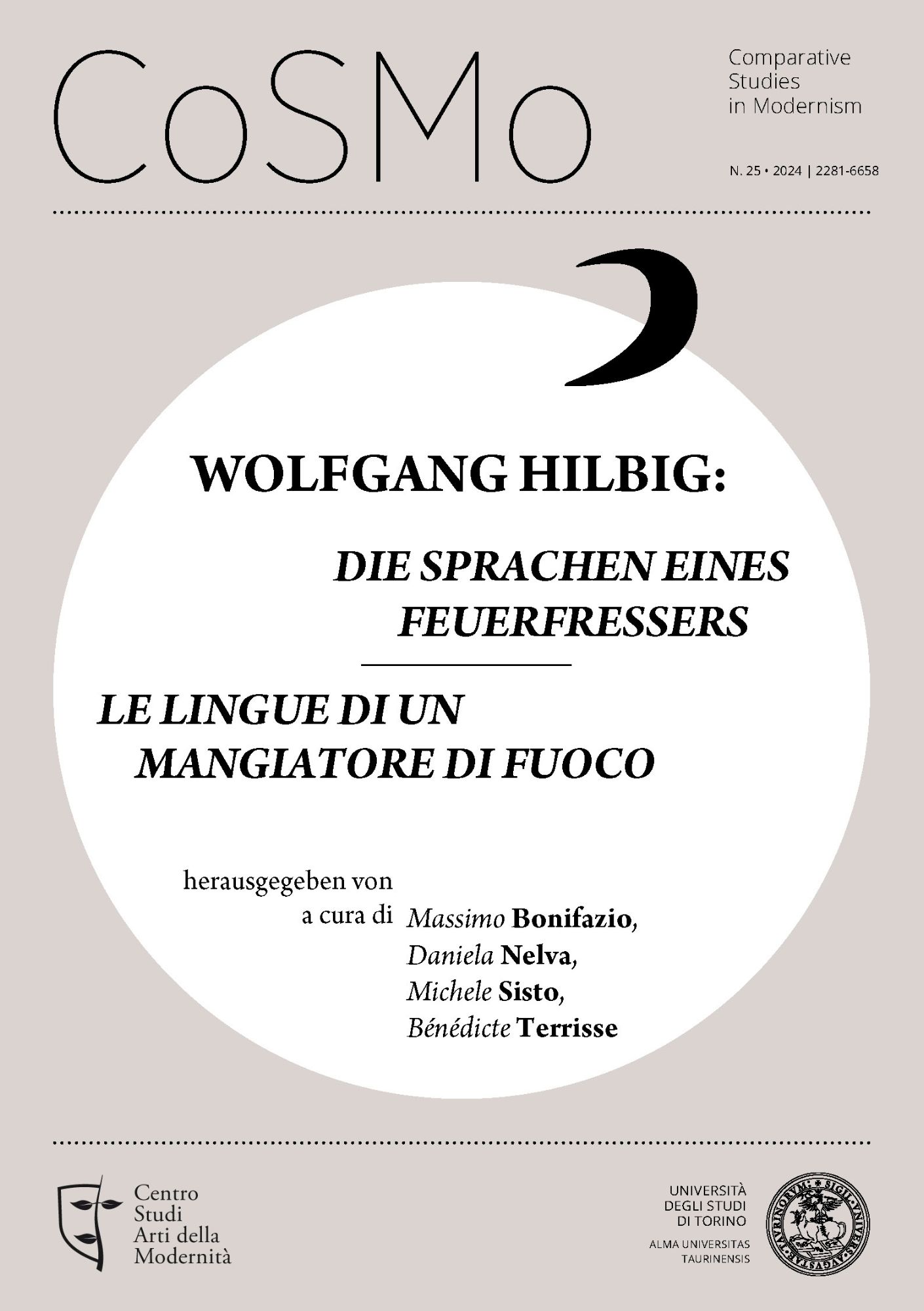“La presenza dei gatti“ (“Die Arbeit an den Öfen“)
Poetica e stile, sintassi e traduzione della prima raccolta di racconti italiana di Wolfgang Hilbig
DOI:
https://doi.org/10.13135/2281-6658/9625Parole chiave:
Wolfgang Hilbig, “La presenza dei gatti”, “Die Arbeit an den Öfen”, Contemporary German literature, Literary translationAbstract
Die Arbeit an den Öfen (1994) is the first, entire collection by Wolfgang Hilbig to have been published in Italy, under the title La presenza dei gatti: the Italian edition of its four short stories came out in 1996 in the translation by Agnese Grieco.
This contribution aims to briefly contextualise the publishing of the two volumes, to introduce the content of the collection and the author’s poetics, to explicate its link to the peculiarities of his style, and to highlight some of the issues raised in its translation into Italian, with special regard to the translation strategies and negotiations that became necessary in order to master Hilbig’s prose.
Particular attention will be paid to the importance of syntactic choices in the target language, and of punctuation itself, to restore the rhythm of such a complex literary language, at once rousing and calibrated, poetic and musical, tense and visionary.
Downloads
##submission.downloads##
Pubblicato
Fascicolo
Sezione
Licenza
Gli autori mantengono i diritti sulla loro opera e cedono alla rivista il diritto di prima pubblicazione dell'opera, contemporaneamente licenziata sotto una Licenza Creative Commons - Attribuzione che permette ad altri di condividere l'opera indicando la paternità intellettuale e la prima pubblicazione su questa rivista.






